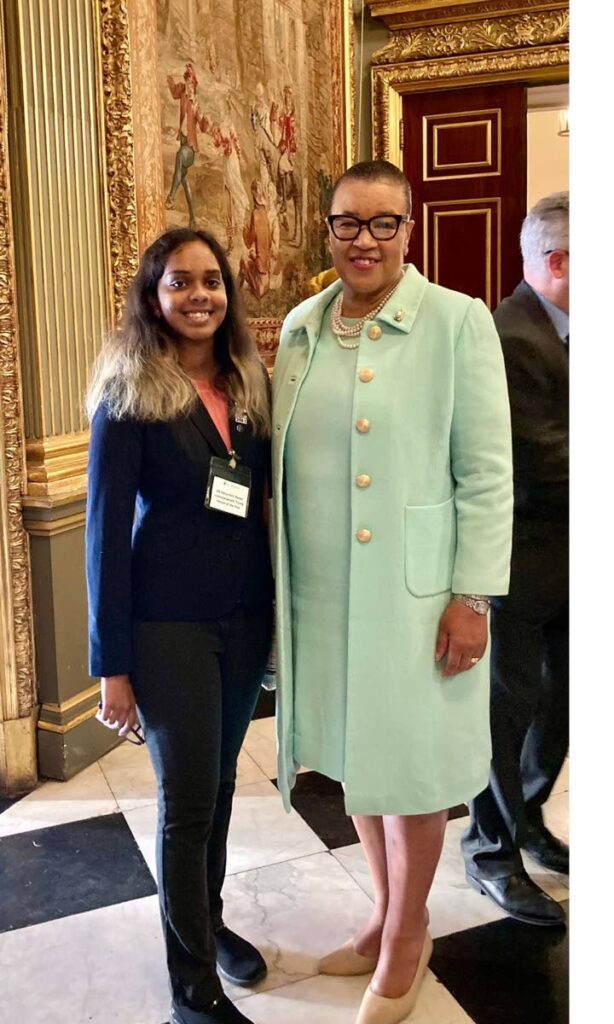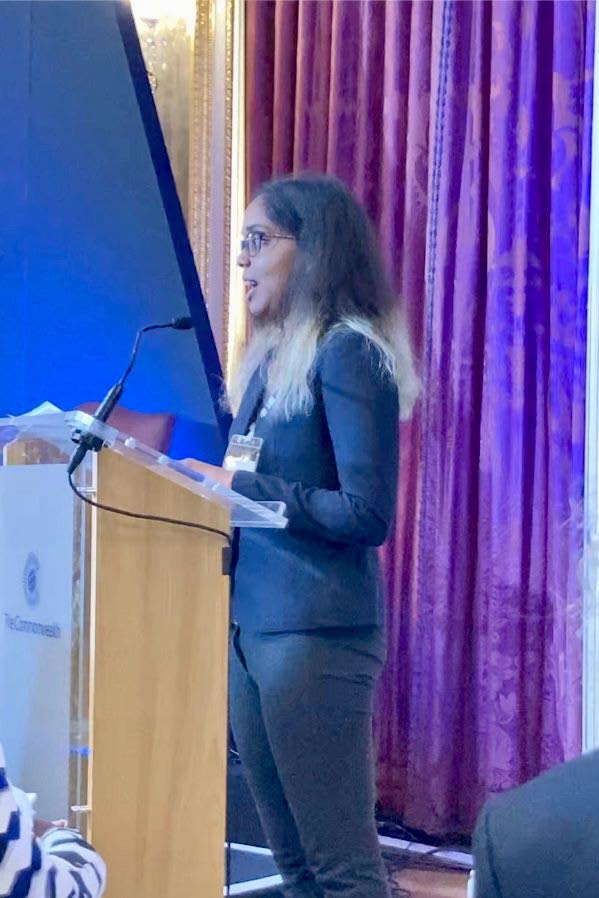Safeguarding people with disabilities

DR RADICA MAHASE
Last week, I had the honour of attending a conference, A Call for Action: Safeguarding the Wellbeing of Women and Children, hosted by the Commonwealth Secretary-General, Patricia Scotland, KC, at Marlborough House, London.
As we get ready to observe International Day for the Elimination of Violence Against Women on November 25, this event addressed violence against women and children. Globally, one in three women experience domestic violence within their lifetime and there is a strong link between child abuse and intimate partner violence, with 40-70 per cent of children entering shelters having experienced abuse themselves.
Maya Kirti Nanan, founder of Autism Siblings and Friends Network and the Commonwealth Young Person of the Year 2023, presented on the roles of allies, friends, and families in supporting people with disabilities and I am sharing parts of her speech here with you.
“It is often said that it takes a village to raise a child and an even bigger village to raise a child with a disability. Imagine a situation where a woman or a 15-year-old girl are at the developmental age of a three-year-old. They don’t understand danger. They don’t understand the concept of personal space. They don’t know how to take care of themselves. They are therefore at a very high risk of abuse.
"At Rahul’s Clubhouse, the autism centre that my NGO opened last year, we interact with women and children diagnosed with autism spectrum disorder, who are always at a high risk of abuse and violence because of their intellectual and emotional challenges. The women and children who access intervention services at Rahul’s Clubhouse are not the only ones – women and children with other types of disabilities are also at risk.
"In TT, four per cent of the total population are people living with a disability and the numbers are increasing. According to the 2011 census, there are more females living with disabilities. In fact, females account for 50.2 per cent of the population of persons with disabilities. Children with disabilities comprise one per cent of the total population of children.
"Persons with disabilities are at a higher risk of violence and abuse. Persons with disabilities are also often overlooked in the development and implementation of policies. Thorough consideration is not given to their special needs as it relates to safety and safeguarding.
"In my work at Rahul’s Clubhouse, the first point for safeguarding persons with disabilities comes from family and friends. In the absence of the effective implementation of legislation to address the challenges faced by persons with disabilities, it is the parents and caregivers, the siblings and the friends who are the ones who play an important role in enabling and addressing safety and safeguarding. It is the village that plays the initial key role in supporting them.
"These allies are the ones who advocate for those who can’t advocate for themselves. In my case, I use my voice to speak for my 19-year-old brother, who is non-verbal. He may not be able to express himself verbally, but I understand him completely. I know when he is not comfortable in a situation or place, and I know when he is on the brink of a meltdown or when he is in a situation that is not safe. Thus, I am in a position to protect him and to look out for him.
"Drawing from my experience with Rahul, my NGO, Autism Siblings and Friends Network, provides support to parents and caregivers and train siblings so that they can also understand and protect those with disabilities who are in their care.

"As my brother’s keeper, I wanted to widen the village and create a group of allies, so I include my friends in my advocacy work. Thus, I train youth volunteers to advocate for inclusion. The result has been amazing. Today, we have a network of autism youth leaders who come together to create opportunities for persons with disabilities in safe environments, who create safe spaces for them, and who use their voices to advocate for inclusion. It is only eight years since I started my NGO, but the village is growing stronger as allies, friends and families are becoming empowered.
"The education and training we provide for all parents, siblings and volunteers emphasise safeguarding. My experiences with my brother – the fact that I need to know that he is safe at all times, had really pushed me to focus on safeguarding all persons at Rahul’s Clubhouse. With the support of the Queen’s Commonwealth Trust, we have developed and implemented strict safeguarding policies. I would like to see this kind of focus coming from all agencies that work with women and children.
"For this to happen, we need to be mindful of the special safeguarding needs of persons like my brother and others with disabilities. Thus, the role that allies, friends and families play in their lives must not be taken for granted. It is imperative that they are given the support they need to safeguard those with disabilities who are in their care. Educational campaigns, funding for training and development and research are just some areas that need immediate attention. Safeguarding women and children with disabilities has to be a priority area as we work towards reducing violence and abuse in our world.”
Radica Mahase is the founder/director of Support Autism T&T


Comments
"Safeguarding people with disabilities"